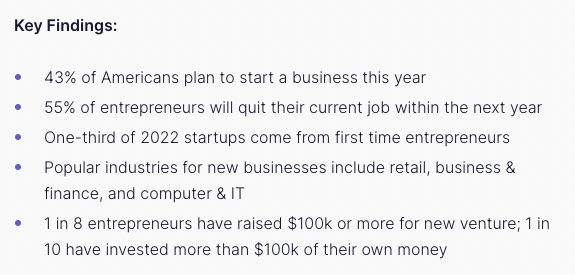White-Collar Employees Becoming Franchisees

A Historical Look at Transformation During Economic Downturns
Economic downturns are often harbingers of change. With the tumult comes not only financial disruption but also a profound shift in career trajectories. As economic landscapes alter, many white-collar employees find themselves on the receiving end of layoffs. Yet, with this dark reality comes an innate human desire to adapt, evolve, and seek out bright new opportunities[1].
During significant recessions, such as the one in 2008 and the unprecedented global situation presented by the 2020 Covid-19 pandemic, a distinct pattern emerged. A multitude of executives, previously ensconced in the secure walls of corporate America, found themselves bravely venturing outside their comfort zones. Many took the bold step to become their own bosses, driven by a mix of necessity and ambition. However, this new path wasn’t entirely without a roadmap or professional support.
Franchising became a beacon for these executives, offering a unique blend of entrepreneurial freedom coupled with established business systems and support structures. This marriage of the corporate mindset with franchising models became a formula for consistent success. Many white-collar professionals who became franchisees discovered that previous roles equipped them with transferable skills beneficial to their own businesses. Their ability to strategize, manage teams, understand financial metrics, and negotiate deals proved advantageous within the franchising realm.
Moreover, the appeal of franchising during such times goes beyond the allure of established systems. Franchises often come with built-in support, training teams, proven marketing resources and, most importantly, a tried-and-tested business model. For individuals transitioning from structured corporate roles, this support system is invaluable. It provides a safety net, ensuring that while they are their own bosses, they are not entirely alone in their new business endeavors[3].
The Future of Franchising
Now, as we stand at the cusp of 2024, witnessing further economic uncertainties, there are signs that history may be poised to repeat itself. With industries such as tech, finance, and real estate predicted to see significant layoffs, the number of white-collar professionals considering entrepreneurship is likely to surge[5]. A 2022 study from digital.com highlighted that two in five Americans were planning on starting their own businesses. Given the evolving landscape, it won’t be surprising if franchising emerges as a top choice for many of these budding entrepreneurs.
However, it’s crucial to note that while franchising offers numerous advantages, it also requires dedication, hard work, and a willingness to adapt. Economic challenges in 2024 might make the franchising landscape more competitive, with more individuals vying for the top spots in mature franchise brands. Aspiring franchisees need to conduct thorough research, understand their chosen industry’s nuances, and be prepared to face the challenges of business ownership.
While economic downturns are undeniably challenging, they also open doors to new opportunities. The journey of white-collar employees turning to franchising is a testament to human resilience, adaptability, and the never-ending quest for success. As 2024 unfolds, it will be intriguing to witness the next chapter in this ever-evolving narrative. To consider all your options in the new year, spend a few minutes with FranchiseMatch.com today!

